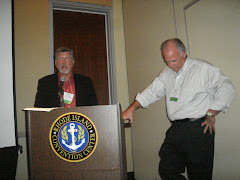Monday, November 12, 2007
Give Victims More Time to file Sexual-Abuse Claims By Marcia Hamilton
UNITED STATESNewsdayGive victims more time to file sexual-abuse claimsBY MARCI A. HAMILTONNewsday Issue: November 9, 2007Who would have thought that the Oprah Winfrey Leadership Academy in Johannesburg, South Africa, could be a place where girls could be physically andsexually abused by one of the dormitory matrons?Winfrey, after all, has been a vocal and active advocate for survivors of child abuse, having experienced this horror as a child herself. You can only imagineher anguish when she heard that the institution she created to nurture girls was doing the opposite.There is a lesson here for everyone: Those who abuse children typically select careers close to them. Whether they choose to be teachers, dormitorymatrons, clergy or Boy Scout leaders, they position themselves to have the greatest access to children.They are scheming and devious to serve their sexual compulsions. Even when the one who is supporting the organization is especially sensitive to childabuse, as is Winfrey, these are people who are very hard to identify.The situation at Winfrey's school could have been worse. After one girl came forward, others followed, and the matron was stopped. But all too often, victimscannot make that public announcement, and the predator and abuse persist, with the abuse spreading to ever more victims.Figuring out who the child abusers are is an intractable, but not impossible, problem. It's incumbent on all of us to find ways to identify predators working withor caring for our children. Because if they aren't identified, they will continue their perverse ways.In the United States, during the past 20 years at least, we've been trying to devise ways to protect our children from predators: Megan's Laws, which createpublic lists of convicted sex offenders; pedophile-free zones, which theoretically keep known predators at a distance from children; and longer prisonsentences and harsher penalties.But there is one key problem with each of these "solutions": They are predicated on the fact that we already know who the predator is.The statistics, though, show that we usually don't know. Only 10 percent of survivors ever report the abuse to authorities.The law has worked to shield predators' identities by keeping victims out of the justice system. Short statutes of limitations - the arbitrary deadlines imposedby legislatures for the filing of lawsuits and prosecution - have been endemic in the law governing childhood sexual abuse, and have shut the courthousedoors to survivors of child sex abuse.All too often, survivors are incapable of pursuing legal action before the state's filing deadline expires. In New York State there's a patchwork of limitations,depending on the offense, some as short as seven years following the abuse. But in many cases victims need decades to understand what happened tothem, and even longer to come forward to loved ones, let alone the authorities.If we don't give the survivor the time he or she needs to file a lawsuit, we may never learn who the vast majority of the predators are.A whole cadre of abusers arrogantly assumes that they will never be made to pay for their actions, because they know the statutes of limitations dramaticallytilt the playing field against the victim. Only by lengthening and eliminating the statutes of limitations governing child sex abuse can we increase thelikelihood that we will learn the identities of more child predators.The safety of our children also demands that expired statutes be waived so that the backlog of unidentified perpetrators will then be publicly identified.In 2002, California passed a one-year window, allowing past victims to file complaints. More than 300 previously unnamed predators were publicly identifiedonce their victims were no longer stymied by an artificial deadline. In July, Delaware put a two-year window into effect.Here in New York similar legislation, introduced by Assemb. Marge Markey (D-Maspeth), has been passed by the Assembly for the past three years with nomeaningful opposition. Sadly for survivors, Senate Majority Leader Joseph Bruno (R-Brunswick) has inexplicably blocked its movement each time.Markey is planning to put the measure forward again in January. This legislation should be a no-brainer - unless the legislature is inclined to assist thoseentities and individuals who would cover up their own complicity in child abuse. That's a move no elected official should ever be permitted to make.Eliminating the statutes of limitations for child sex abuse is the only tool available to increase the public's knowledge of perpetrators. It will identify not onlythe perpetrators but also the survivors who need our support - when one victim steps forward publicly, others soon follow. That is exactly what happened inCalifornia and at Winfrey's school.It's a shameful fact that most states have had such short statutes of limitations on childhood sexual abuse that the victims have been foreclosed from justicewhile predators enjoyed a system that protected their interests.California and Delaware are showing the rest of the country the more heroic and noble path to follow. New York and the other states must get in step.---------------------------------------------------------------------------------Marci A. Hamilton is a professor of public law at the Benjamin N. Cardozo School of Law and author of the forthcoming "Justice Denied: What America MustDo to Protect Its Children."
Subscribe to:
Post Comments (Atom)

No comments:
Post a Comment